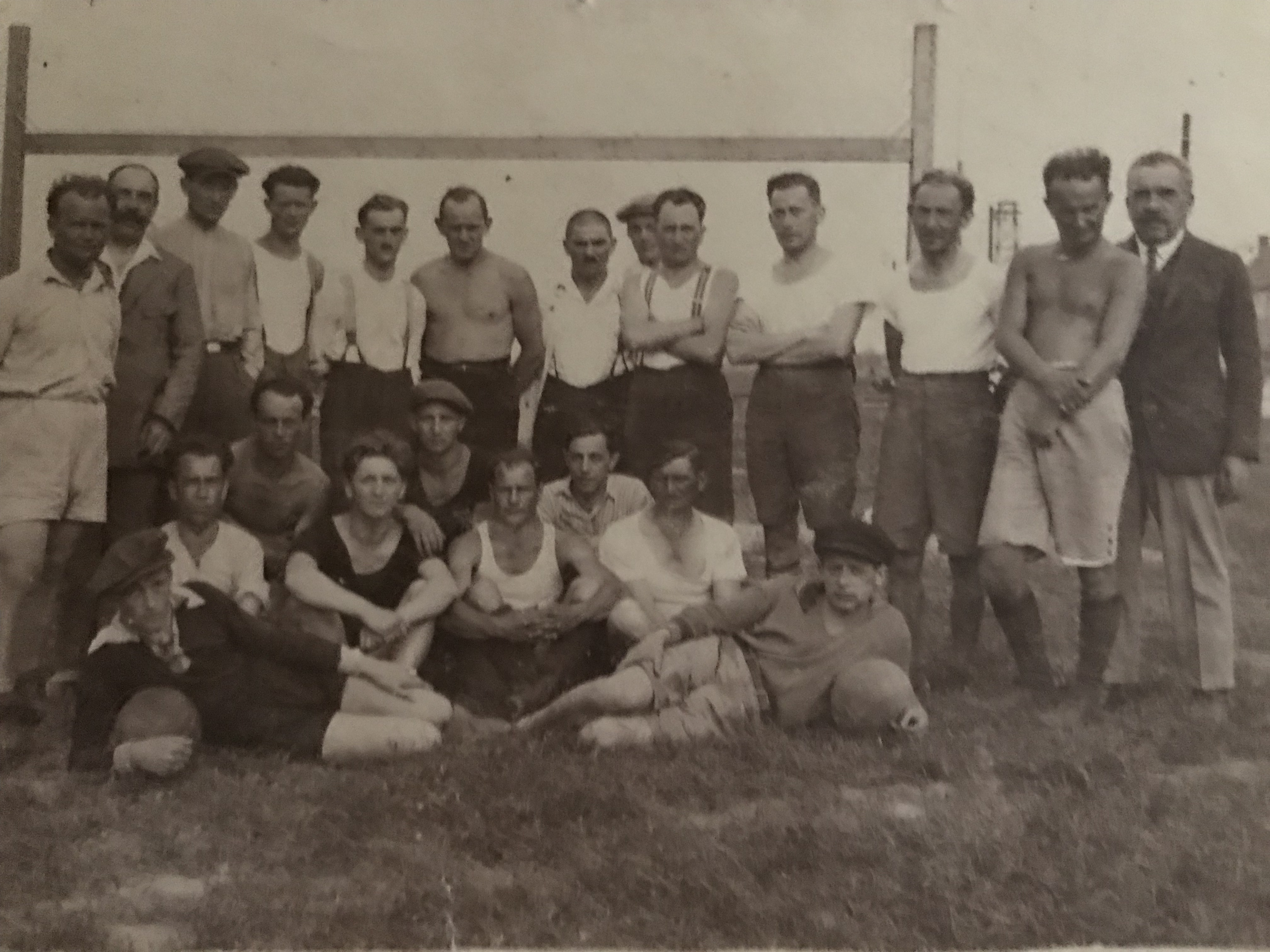“DANUBE FOOTBALL” – VIENNA’S IDENTIFICATION WITH FOOTBALL – AND THE “DANUBE MAIDENS” – VIENNA’S FEMALE SWIMMING CHAMPIONS (until 1938)
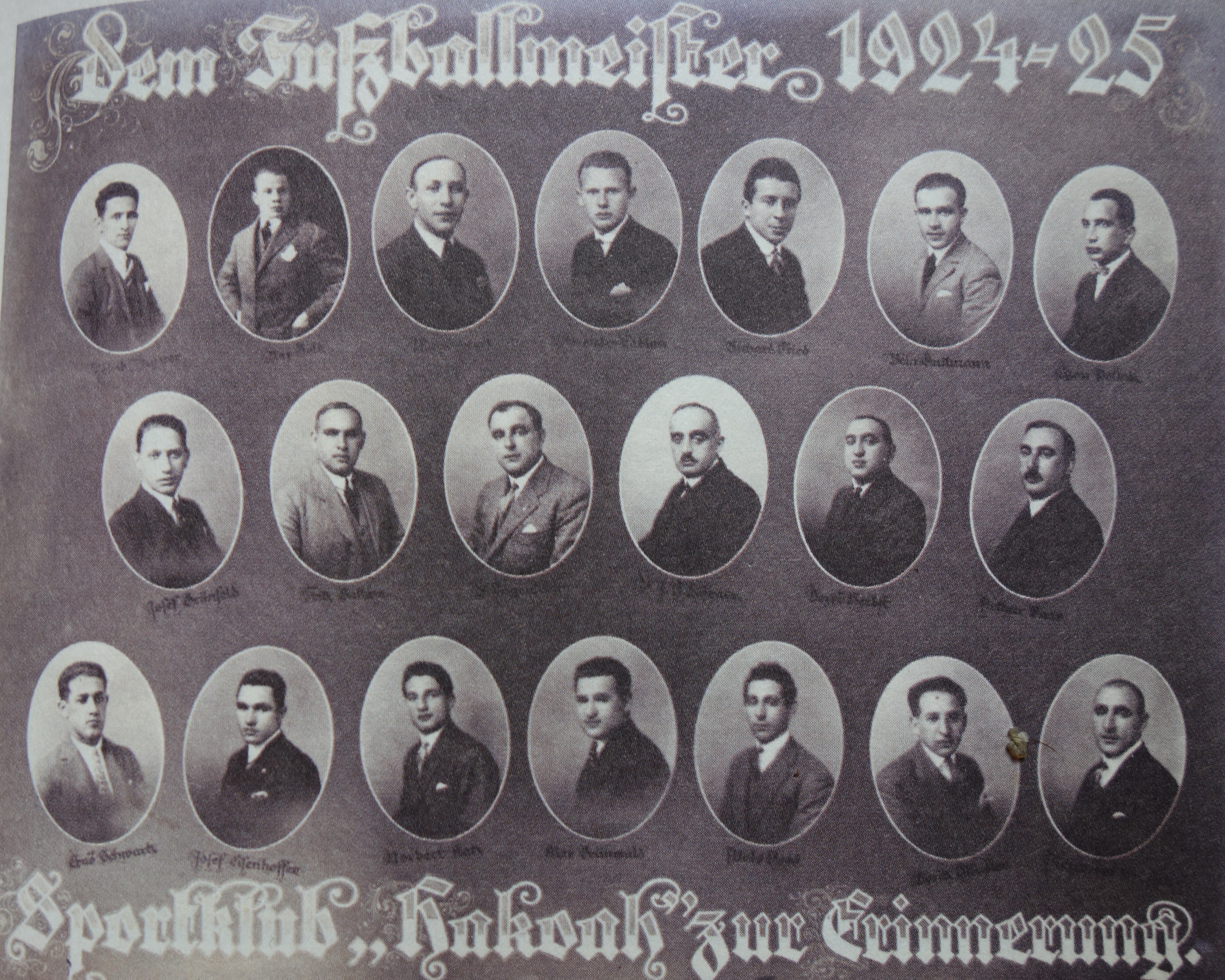
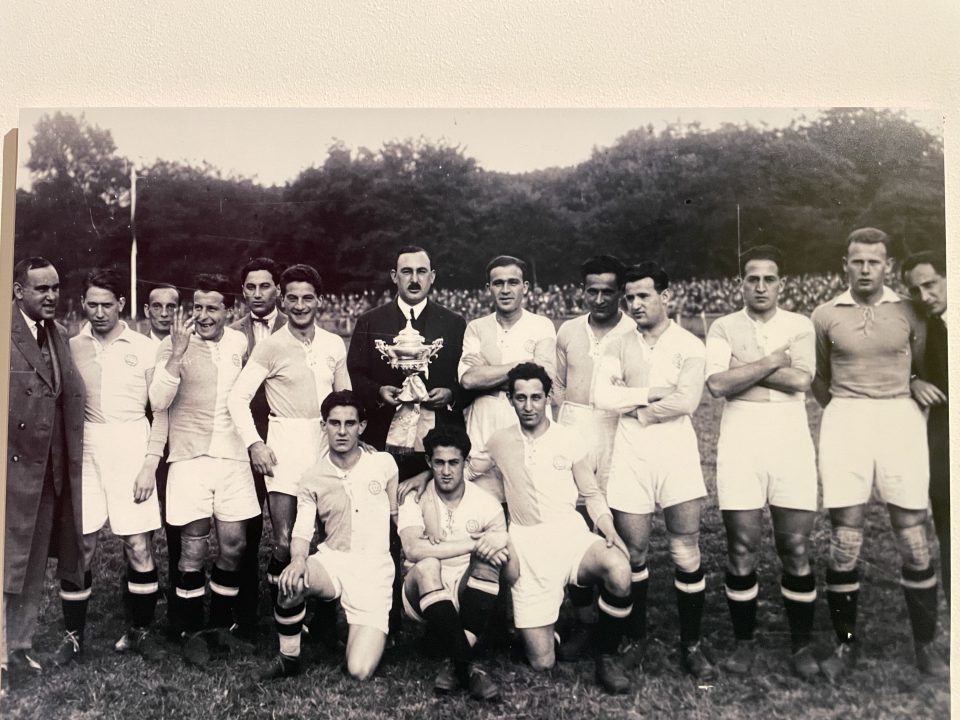
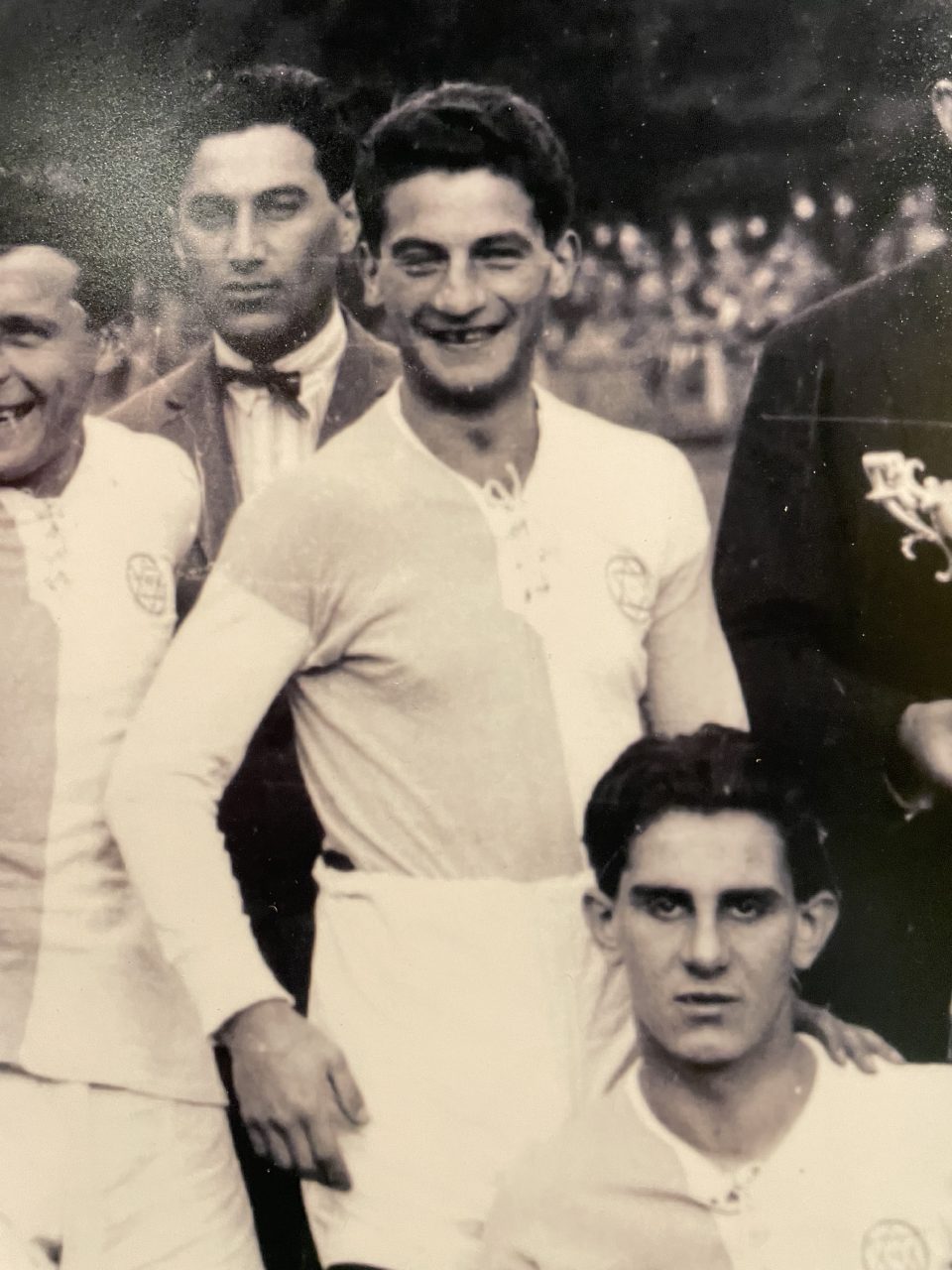
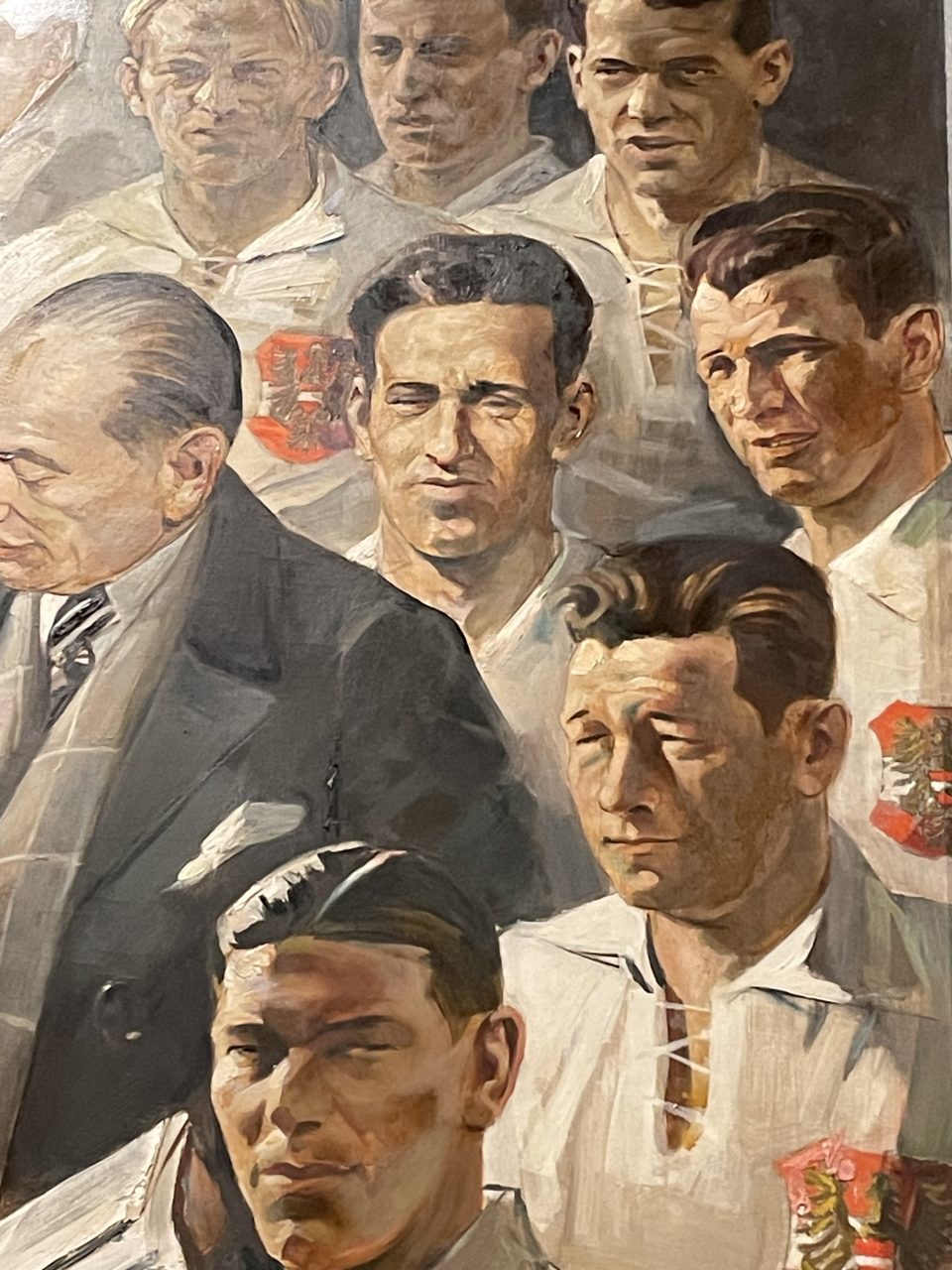
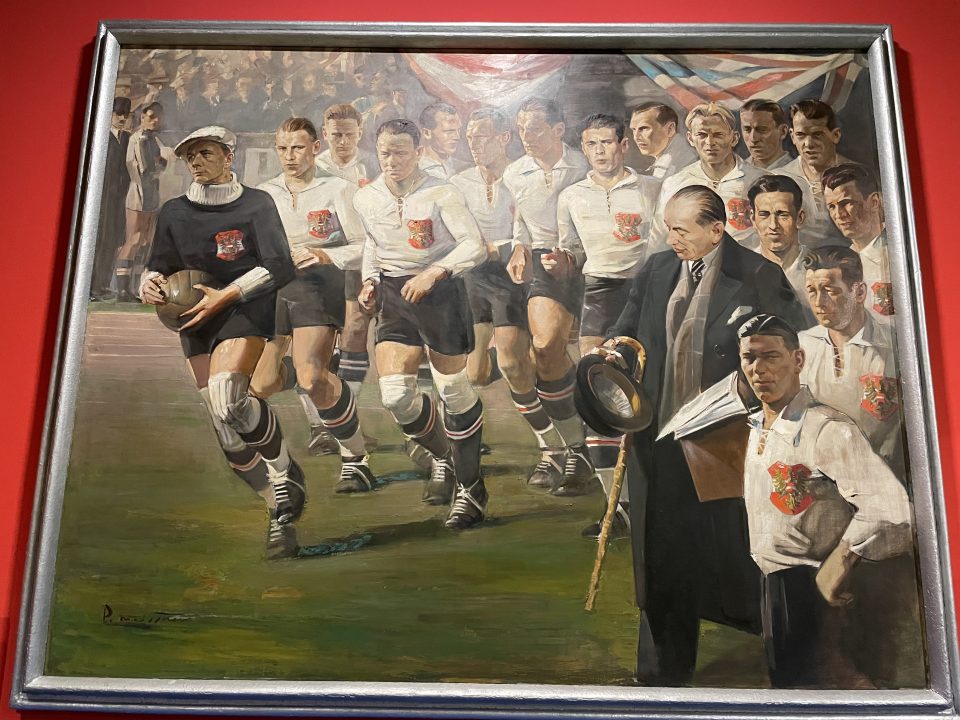
Norbert Katz, the husband of my great-aunt Agi, was a very talented and successful professional footballer in Vienna until he had to emigrate in 1938. As a very young player he became champion of the Austrian second league in 1919/20 with his team Hakoah Vienna and was Austrian Champion in the season 1924/25 with Hakoah Vienna. Later in England he was employed as a bank clerk, but continued to work as sports trainer and football functionary. This fact offers the chance to investigate the significance of football for the city of Vienna as a vehicle of identification with the young Austrian state. May great-aunt, Agi, was a free water Danube swimmer for the sports club Hakoah, one of the “Danube Maidens”, before she married Norbert. Swimming, just as football, was a very popular and internationally successful sport in Vienna in the 1920s and 1930s.
At the end of the 19th century the English sport football was introduced in Graz, Prague and Vienna, but Vienna soon took the lead because football was directly introduced by Englishmen in Vienna, whereas the clubs in Graz and Prague were subsidiaries of Frankfurt clubs. At that time many English people worked and lived in the Habsburg Empire’s capital city. They introduced the ethics of sport and its benefits for health and mind in the Austro-Hungarian Empire. The gasworks in Simmering, for example, were an English subsidiary and the British company brought many English engineers, skilled workers and white collar staff to Vienna and they started to play football at the “Jesuitenwiese” in the Vienna Prater. Other important British companies that had established businesses in Vienna were Clayton & Shuttleworth, which produced agricultural machines and typewriters, Thomas Cook & Son, the travel agent, and several British sanitary firms. Gandon of the gas works, Gramlick, the owner of a British sanitary firm, Shires, a salesman of the “Underwood” typewriter, Blackey, the director of Clayton & Shuttleworth, Reverend Hechler of the Anglican Church in Vienna, Blyth of Stone & Blyth and Loew, director of the Viennese hat factory Böhm, these were the men who introduced football to Vienna. In 1892 they founded the “Vienna Cricket Club”, but cricket could not find enough players and spectators in Vienna, so the club decided to introduce football in Vienna, too, and in 1894 they changed the club’s name to “Vienna Cricket and Football club” (later “Austria Wien”). Just a few days earlier another group of Englishmen had registered the “First Vienna Football Club” with the imperial administration in 1984, which means the “Vienna” was the first Viennese football club in the city. The two clubs “First Vienna Football Club”, called “Vienna” and the “Vienna Cricket and Football Club”, called “Cricketer” (later FK Austria Wien) were based in Döbling and Heiligenstadt and their first players were the gardeners who Baron Nathaniel Rothschild had brought to Vienna to tend his gardens at the “Hohe Warte”. “Vienna” was the first Viennese football club that also accepted Austro-Hungarian players and was not exclusively managed by Englishmen. Franz Joli, son of the inspector of the Rothschild gardens was enthusiastic about football after his stay in England and he and his brother Max Joli boosted the enthusiasm for the new game among the local population. They started to play with the English gardeners in the Rothschild gardens. So, father Joli had to look for an appropriate football ground outside the gardens in order not to have the lovingly tended meadows of the Rothschild gardens devastated. The first football ground of the “Vienna” was an unused plot at the Heiligenstädterstraße, later the “Kuglerwiese”. The founding assembly took place at the inn “Zur schönen Aussicht” at the “Hohe Warte” on 22 August 1894 and the colours chosen for the club were blue and yellow, the colours of the Rothschild horses competing at the race course in Freudenau. The club was founded under the patronage of the director of the Rothschild bank in Vienna and Baron Rothschild paid for the rent of the football ground and subsidised the club. The first club pub was “Bittners Restaurant” at the Heiligenstädter Pfarrplatz. On the 15 November 1894 the first football match between the two rivalling clubs took place at the Kuglerwiese and the “Cricketer” won 4:0. This was the birth of the Viennese football sport.
